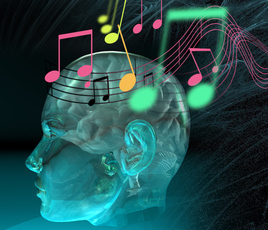Published: April 28, 2009
Here’s a related study (to the previous post) on managing routine sleep problems in children, which can be a testing time for parents as well as being highly stressful for the child. Add a child with anxiety to the mix and a good night’s sleep for everyone can be elusive if not impossible.
Now a new study led by Associate Professor Jennifer Hudson, from the Centre for Emotional Health at Macquarie University published this month in the international journal, Behaviour Research and Therapy, sheds light on the sleep patterns of children diagnosed with anxiety, by comparing them to non-anxious children. The children in the study ranged in age from seven to twelve years old.
Most childhood problems associated with sleeplessness, such as delays going to sleep, night-time fears and difficulty sleeping alone, gradually resolve themselves as the non-anxious child ages. But for some children, anxiety about a range of issues leading to difficulty sleeping or falling asleep, may persist and can eventually cause more serious problems later in life if left untreated. Link to continue reading
Source: Macquarie University
Published: April 28, 2009

© iStockphoto.com
A recent Finnish study suggests that children’s short sleep duration even without sleeping difficulties increases the risk for behavioral symptoms of ADHD. During the recent decades, sleep duration has decreased in many countries; in the United States a third of children are estimated to suffer from inadequate sleep. It has been hypothesised that sleep deprivation may manifest in children as behavioral symptoms rather than as tiredness, but only few studies have investigated this hypothesis.
[continue reading…]
Published: April 27, 2009

© iStockphoto
A new study led by the
University of Leicester has demonstrated that consuming alcohol did not affect how men judged the age of women. This has important legal implications if alcohol is cited as a cause of impairing judgement in cases of unlawful sex with a minor.
[continue reading…]
Published: April 27, 2009

Created by Paul Wedig
Every brain has a soundtrack. Its tempo and tone will vary, depending on mood, frame of mind, and other features of the brain itself. When that soundtrack is recorded and played back — to an emergency responder, or a firefighter — it may sharpen their reflexes during a crisis, and calm their nerves afterward.
Over the past decade, the influence of music on cognitive development, learning, and emotional well-being has emerged as a hot field of scientific study. To explore music’s potential relevance to emergency response, the Dept of Homeland Security’s Science & Technology Directorate (S&T) has begun a study into a form of neurotraining called “Brain Music” that uses music created in advance from listeners’ own brain waves to help them deal with common ailments like insomnia, fatigue, and headaches stemming from stressful environments. The concept of Brain Music is to use the frequency, amplitude, and duration of musical sounds to move the brain from an anxious state to a more relaxed state. [continue reading…]



